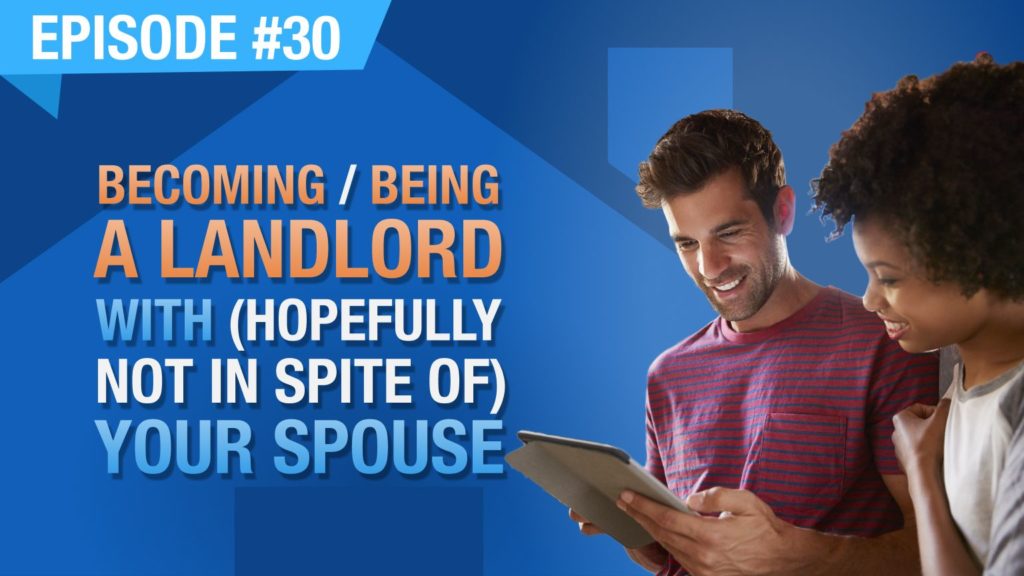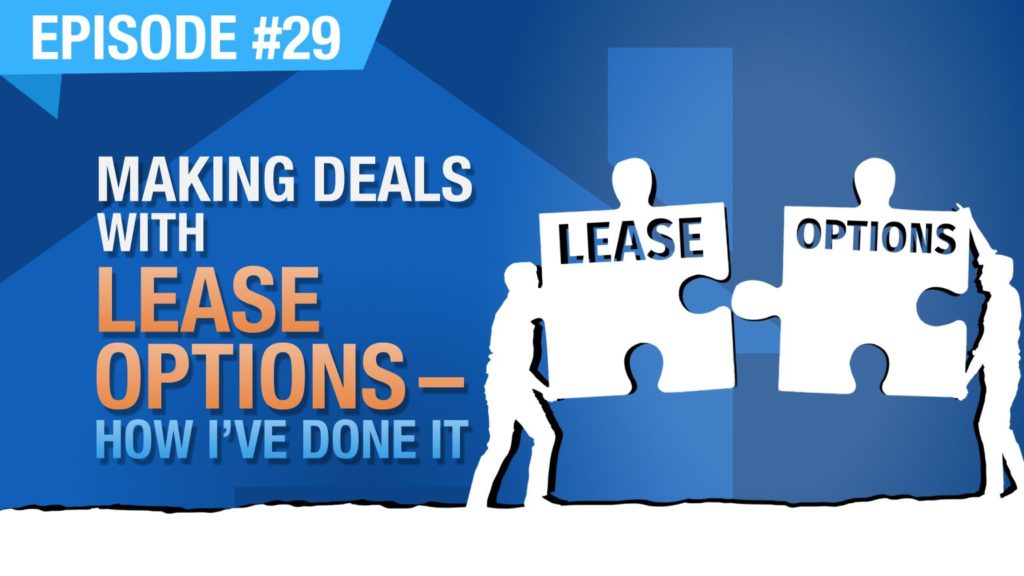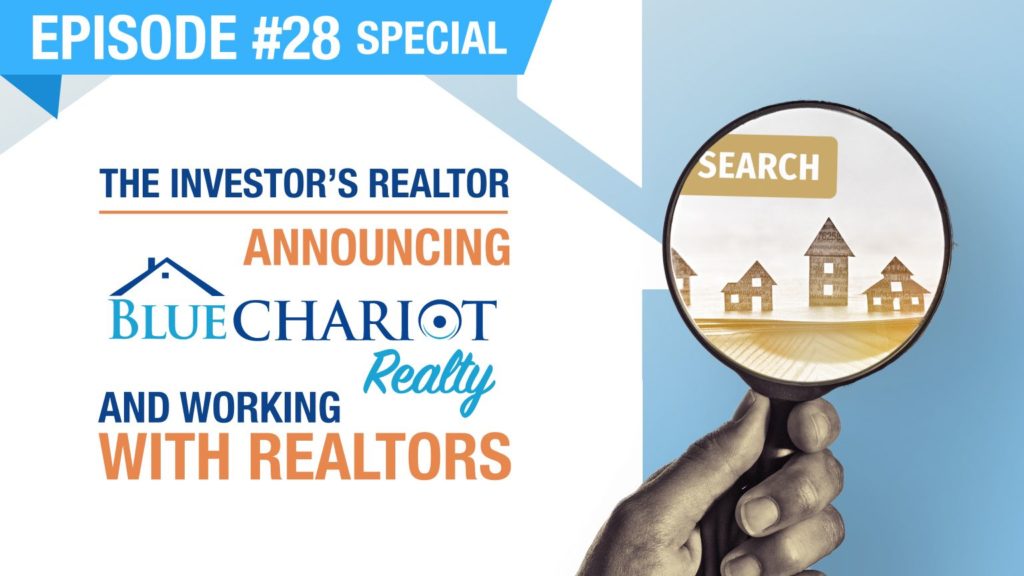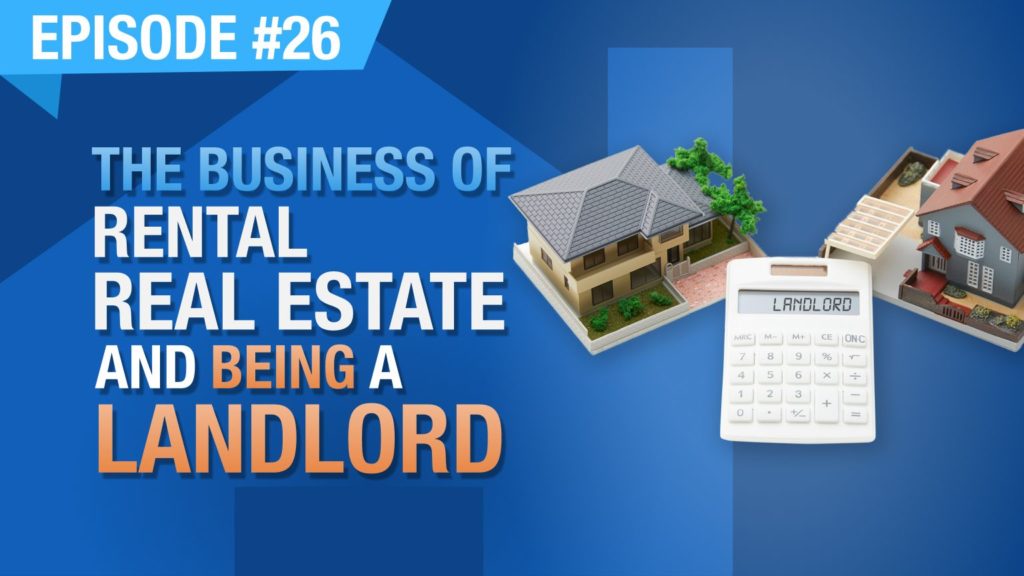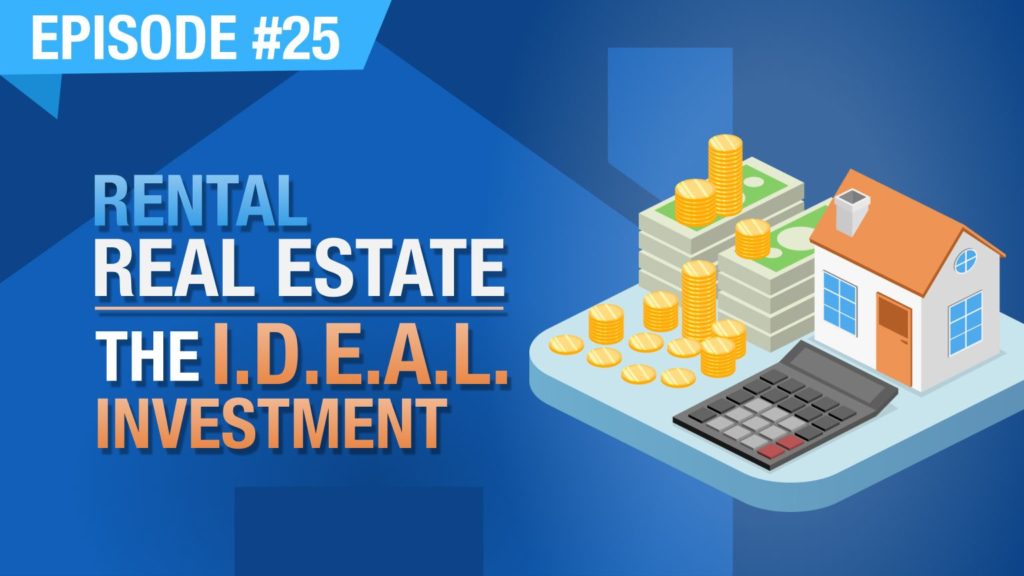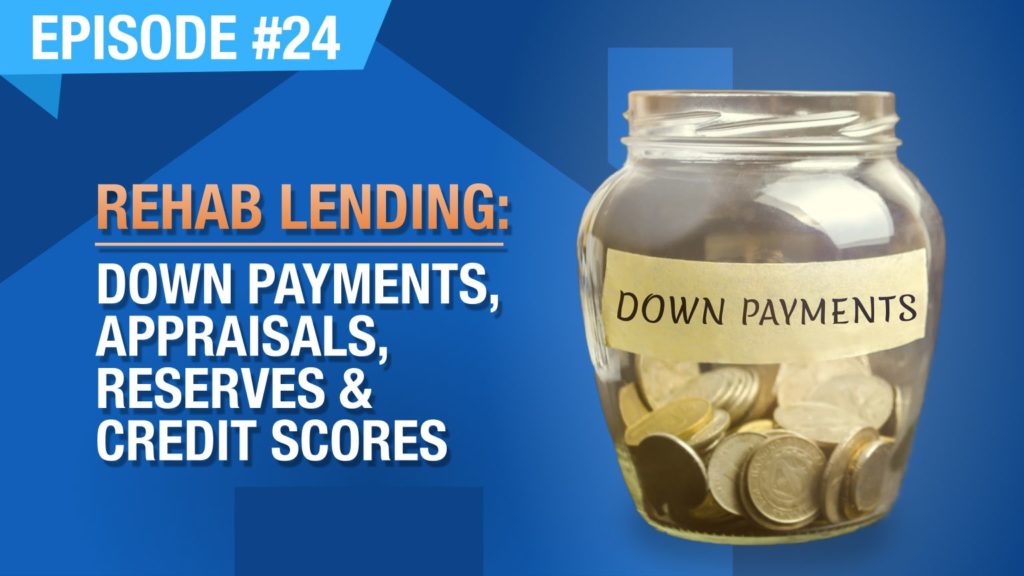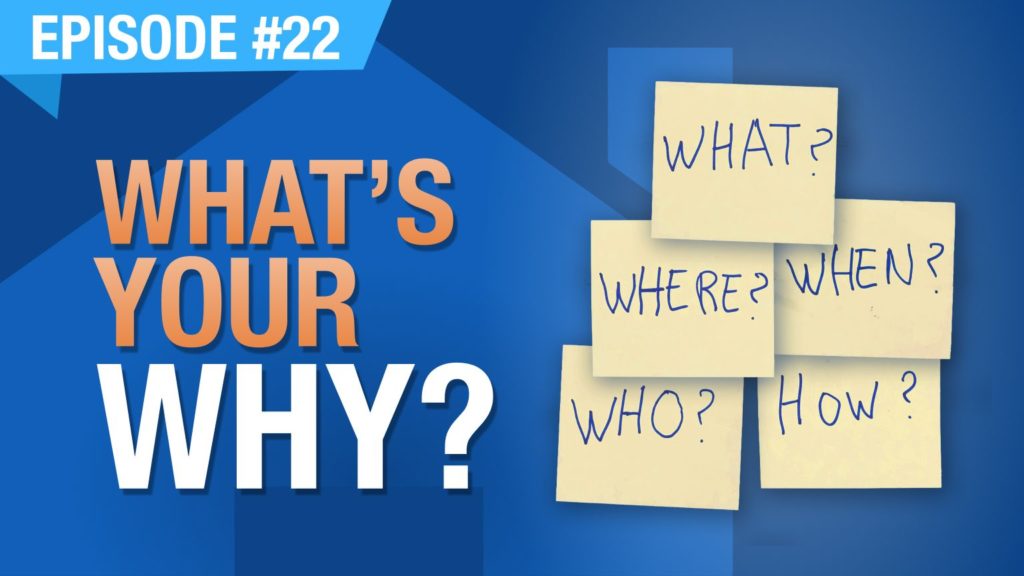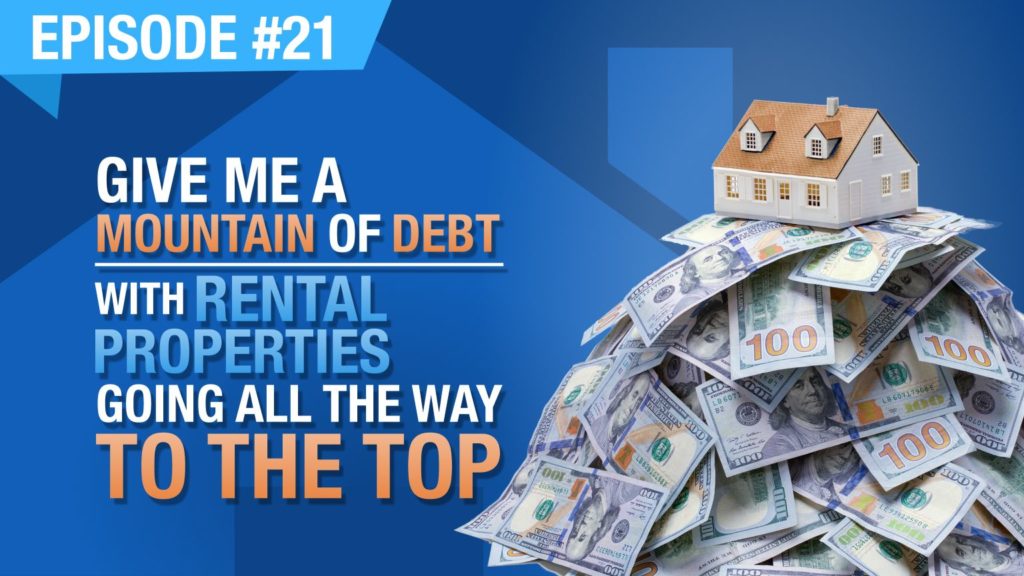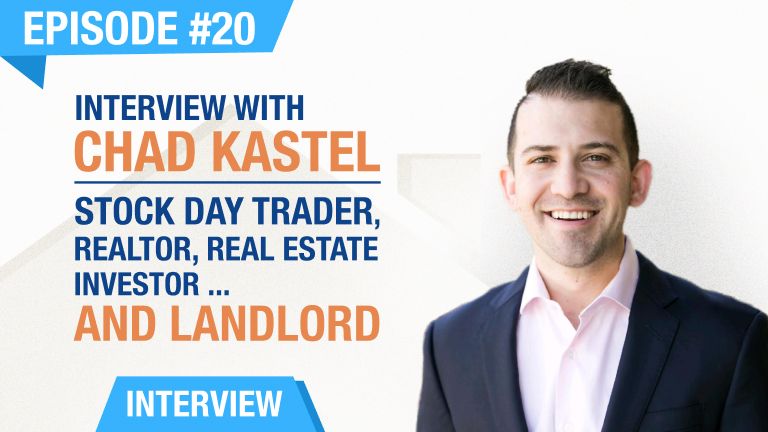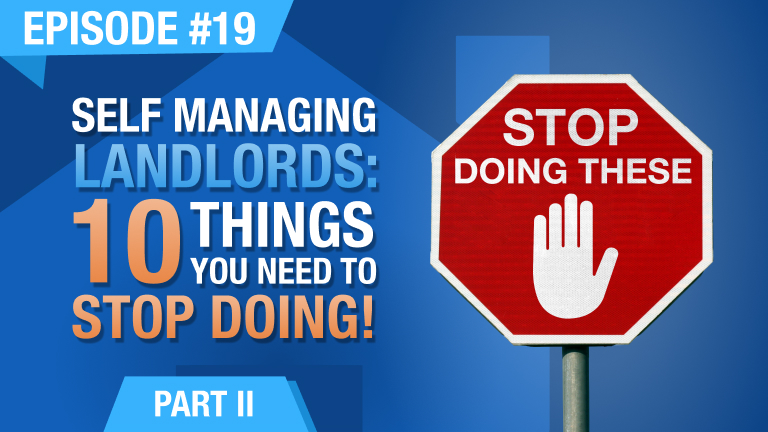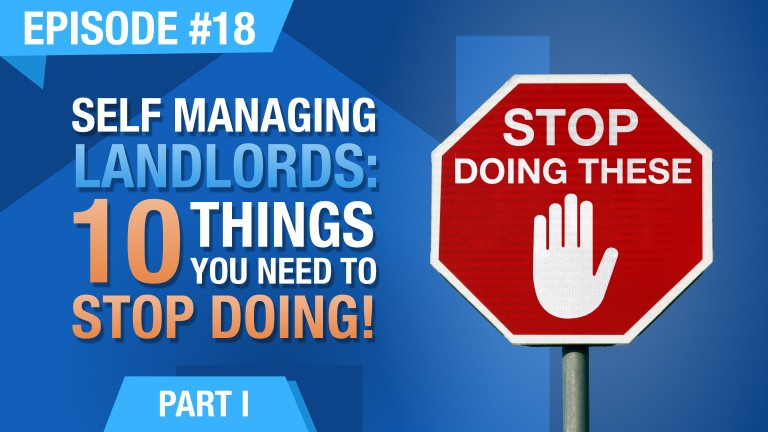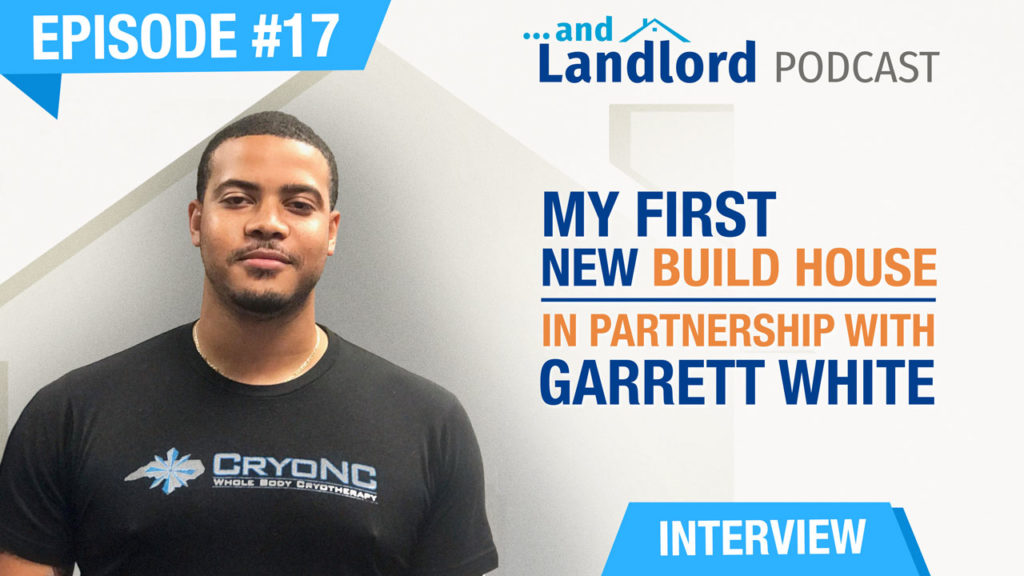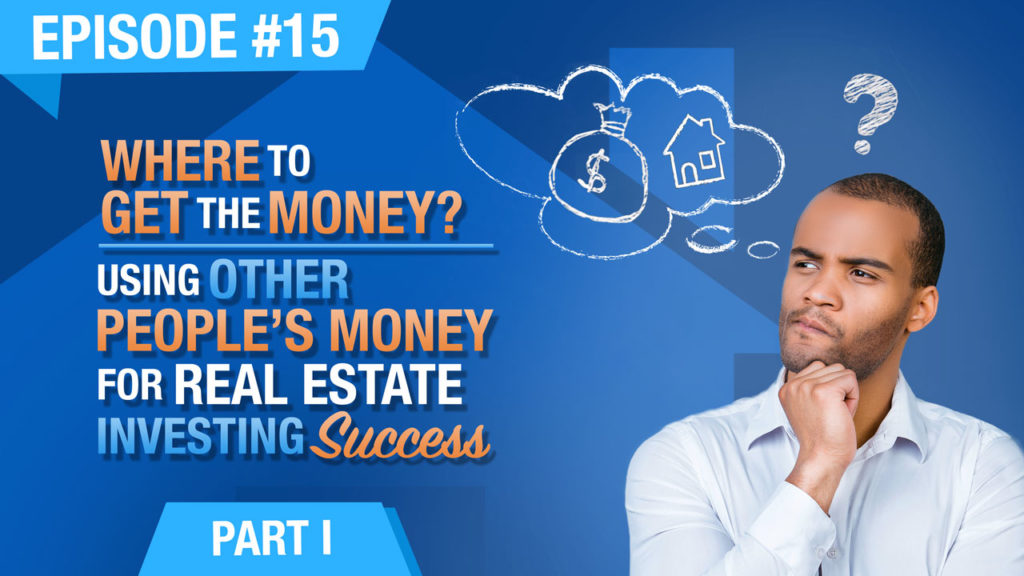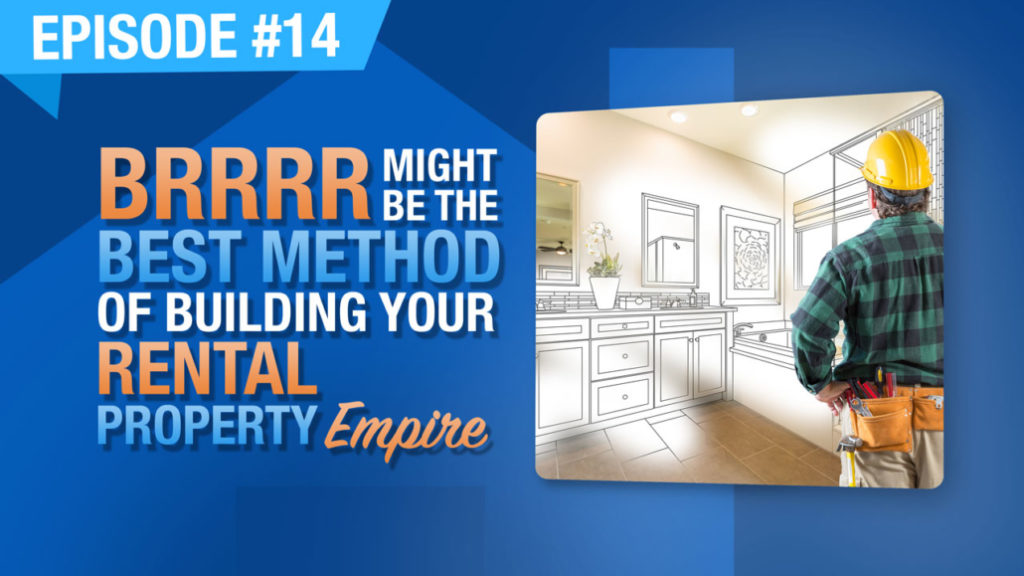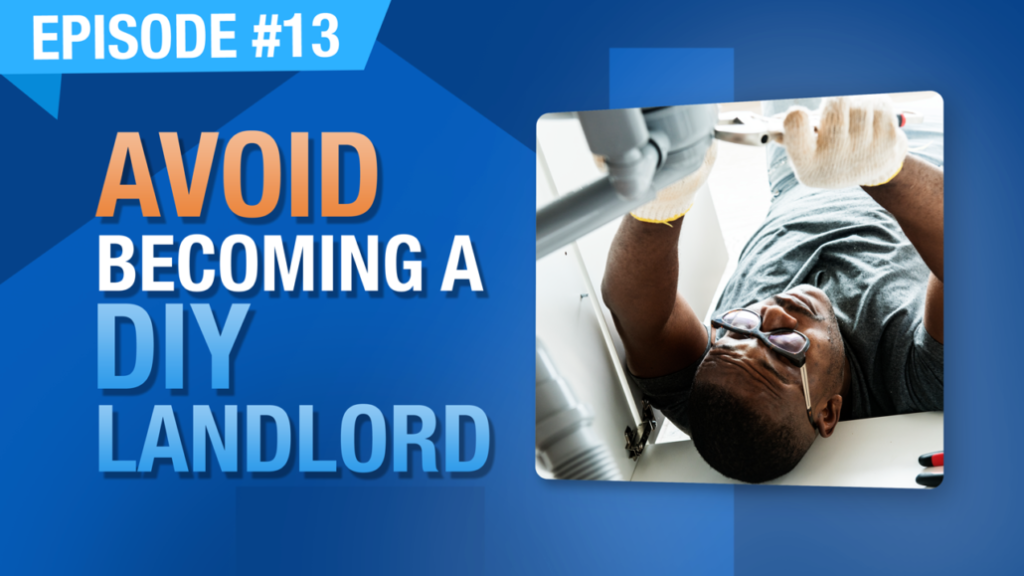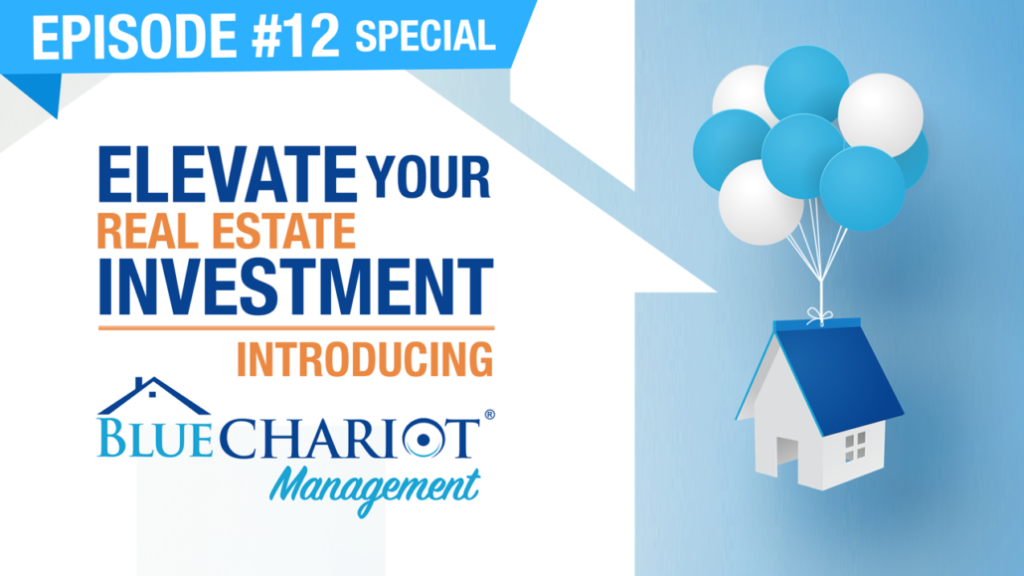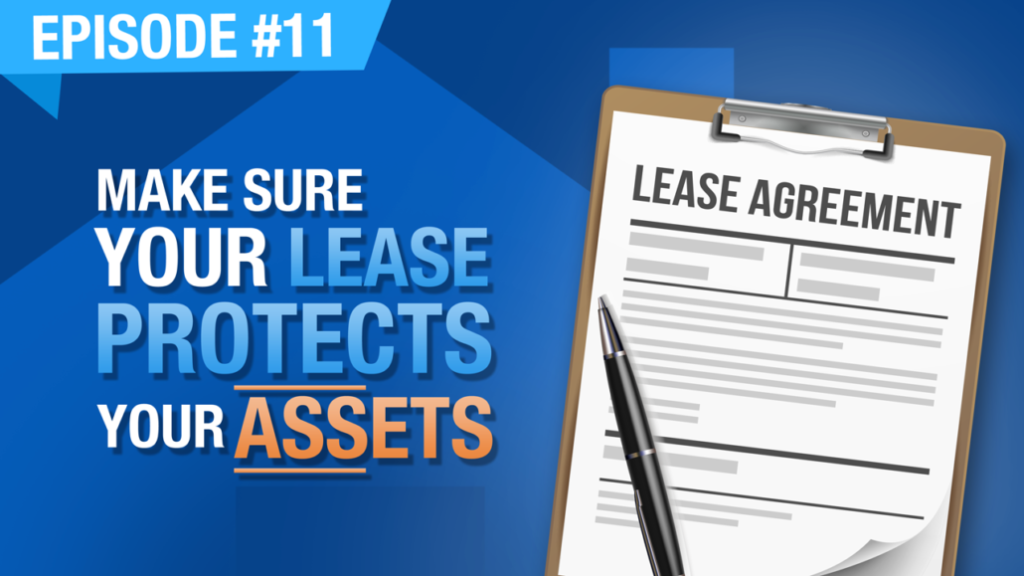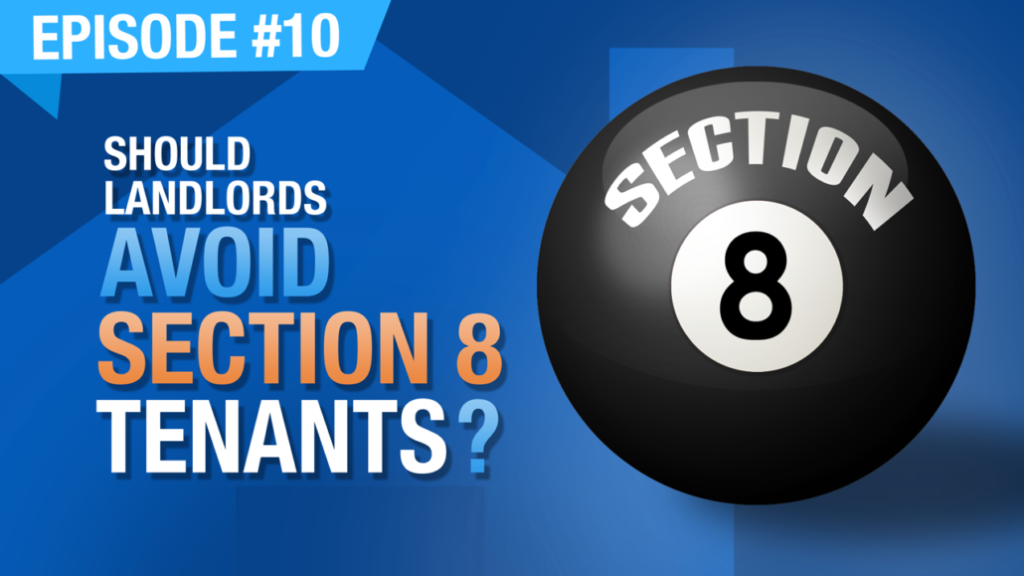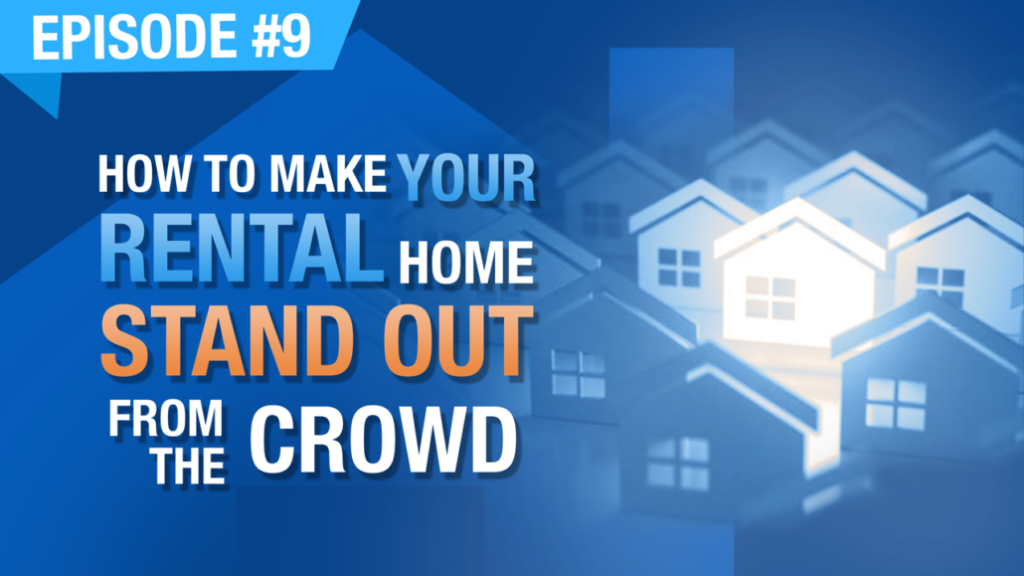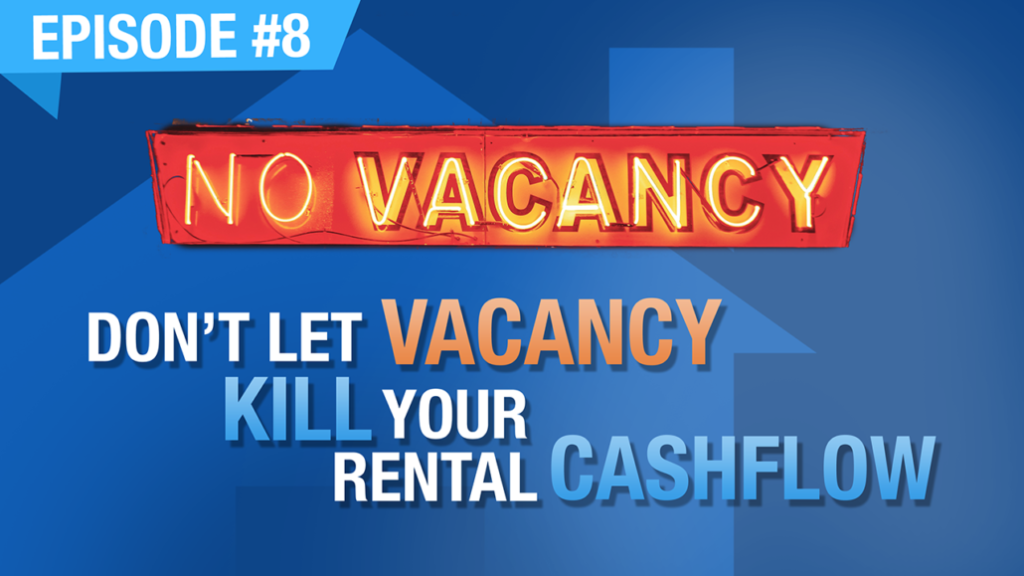Ep. #31 - Private Lending - Be The Bank... You Can Also Invest In Real Estate As The Lender
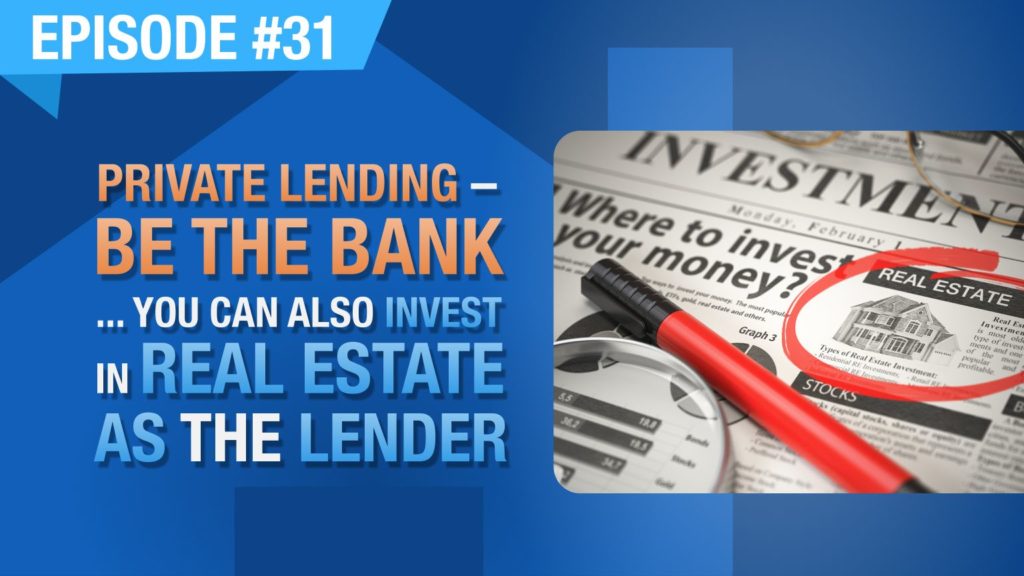
Show Episode Transcript
For certain people, it won't matter how many episodes I (or anyone else) releases explaining all the benefits of (and how great it is) being a Landlord. They just don't want anything to do with it. It could be due to fear of "Tenant Troubles". They may have had a prior bad experience. Or maybe it just seems like a lot of work. Whatever the reason, they won't be investing in any Real Estate, if it also requires being a Landlord.
But there's an alternative... You can be a Real Estate Investor, without also being a Landlord. Be the Bank instead!
----------
Intro...
Welcome to Episode #31 - Private Lending - Be The Bank… You Can Also Invest In Real Estate As The Lender
No Vacancies... No Leases... No Repairs... No Pests... No "Tenant Troubles"... And certainly no 2 AM calls for toilet clogs (not that that happens anyway) - but that's the fear. You can avoid all this and everything else that people fear about being a Landlord, by being the Bank instead. So fine, you don't want to be the Landlord? Be the Lender! The Private Lender, that is... For other investors who seek to become or grow as Landlords themselves.
So you don't have to be the Landlord to be a Real Estate Investor. Like I said, you can be the Private Lender for other Landlords. You see, most of my BRRRR projects (that being Buy, Rehab, Rent, Refinance, Repeat), are funded initially by either Hard Money or Private Lenders - both of which are actually just Private Lenders. Hard Money Lenders are just professional Private Lenders, and you can invest your money in Real Estate indirectly with them. Or you can invest directly as a Private Lender - of which there are pros and cons with both methods.
I tend to use Hard Money Lenders to fund my projects when either the purchase price and/or rehab expense is rather high. For instance, I've got a project just getting started for which the total loan from a Hard Money Lender for their 80% portion of the purchase price and 100% of the rehab expense totaled over $400,000. And since most individual Private Lenders don't have $400K just laying around (or at least not for a single project) - Hard Money Lenders work best for the higher cost projects, as they're able to pool the money of multiple Private Lenders into higher budget projects. You may even find that some Hard Money Lenders won't fund a project below a certain amount, like $100,000.
Whereas, I tend to get funding directly from individual Private Lenders for the lower costs projects, such as those below the typical Hard Money Lender minimum of $100K; and those projects up to as much as let's say $200,000 or so - can be funded for an amount that is more feasible for many Private Lenders on any given project.
So as the Private Lender, you need to determine if you're most comfortable working within the system of a larger established Hard Money Lender (but likely for a lessor interest rate and lower resulting return). Or if you'll be comfortable establishing your own relationship with one or more individuals who are buying rental properties within the price range and rehab level that you're able to fund the complete project.
Now I can't speak to being a Private Lender within the system and processes of any given Hard Money Lender; because, I personally prefer the knowledge and control that comes from funding the projects directly of individuals that are in my local area who I know personally... But hey, that's just me.
----------
So let's cover some of the benefits of being a Private Lender - and as we move forward with the conversation, I'm going to speak towards being a direct Private Lender, funding individuals you know personally, likely in your local area; versus lending nationwide to people you don't know, through the system of a given Hard Money Lender - like I said, that's what I prefer, but you do you! If you do start funding projects outside of your local area, at lease stay local for the first few - or make sure you're rock solid confident in that individual or organization and how they run their business and handle their projects.
So when a Private Lender funds one of my projects here in North Carolina (the process may be different in other states) - they get a Promissory Note for the amount being loaned, and a Deed of Trust that get's recorded against the property title, linking the debt to the house. No different than any other mortgage held by a bank, this prevents the property from being sold until the Note has been paid in full.
These documents set the terms, like interest rate, payments, due date, and all; and just like any other mortgage against a property held by a bank - it gives the Private Lender full rights and ability to foreclose on the property and take possession if the terms of the arrangement were to be violated.
So let's say I'm buying a house for $100,000 that needs $20,000 of rehab to then be worth $160,000. If I were to seek funding for this project from a Private Lender at 80% LTV (Loan-To-Value), that would be a loan of $128,000. So I'd be getting 100% of both the purchase price and rehab expense + $8,000. And if closing costs were $3,000, I'd walk away from the closing table on such a purchase with a check in hand for $25,000 - of which $20,000 would go towards the rehab as budgeted; and $5,000 goes to me!
I would hold that extra $5K in reserve to handle my initial holding expenses, including the first payment or two on the loan. Yes, that right - in such a scenario, I would be borrowing the very money that will be used to make the first payment or two back to that Private Lender during the rehab before the property has been rented. I want as little money as possible coming out of my pocket - which makes it a great deal for me.
But it can be argued that it is an even better deal for the Private Lender... So on this same hypothetical purchase with a loan of $128,000, let's say I'm giving this Private Lender 10% interest. That would be a monthly interest only payment (rounded up) of $1,067. And if I were to get this property rented a month or two later for $1,500/mo - you can see that the Private Lender is getting a LOT more of the monthly rent than I am. But it's even worse than that for me... I've also got to pay taxes and insurance out of that. Maybe also an HOA, and something like 25% needs to be held in reserve for future repairs and maintenance, capital expenditures (large ticket repairs), vacancy and property management. By the time you account for all that, I'd be losing money each month. So on numbers like this, I may be only able to pay 8% interest to the Private Lender. So at 8%, that would be a monthly interest only payment (rounded) of $853 - which would give me an additional $213 to work with each month, versus 10% interest.
So I don't guarantee any specific rate to my Private Lenders... While its great to be able to pay that double digit rate of 10%, it really just depends on the numbers of the deal. Because if I'm making $100/mo in positive cash-flow after all expenses and reserves, I don't care that my Private Lender is making over $850/mo in the prior example - as I can buy every house I find that creates this amount cash-flow. And I'm playing the long-term game, trying to acquire as many cash-flow positive properties as I can, so that they can be paid off over time by my Tenants - making me wealthy in the process. But if I'm losing $100/mo, then I can only buy as many as I can cover from my personal funds. And that would also create more risk for the Private Lender. So would you rather have 10% on a losing deal with negative cash-flow for your borrower; or 8% on a deal that pays for itself each month - creating a win for you and your borrower?
And then its up to you as to exactly how low you're willing to go... More deals will create positive cash-flow at 7% or 6% than will at 8%, 9% or 10%. And still more at 5%, but at a certain point its no longer worth it, as the reward becomes outweighed by the risk - especially if you can make 5% or 6% easily elsewhere. For that reason, I look for deals that are a win / win at no less than 7% interest, and I pay 8%, 9% or 10% to my Private Lenders wherever the deal supports it, as I want my lenders to benefit as much as possible - so they'll always be available to fund my deals.
----------
So one of your benefits as a Private Lender is that you're sitting in the seat of the bank. Should the borrower not pay, you can foreclose and ultimately take possession of the property. Yes, that would be a major headache and you'd have some time and legal cost to do so. But if you keep some amount of cushion between what you fund and what the property is worth (like 80% LTV), then you should be safely able to get the property sold to recapture your principle in this (hopefully unlikely) event. And you'd want to make this a highly unlikely outcome by working with local individuals that you know directly and who are highly experienced in successfully rehabbing properties to rentals and being a Landlord.
And another benefit is that also just like the bank, you're getting the vast majority of the monthly rent as the lender. In the example I gave previously of the property rented for $1,500/mo, on a $128,000 loan at 10% interest, the Private Lender is getting over 71% of the monthly rent. And even at 8% interest, you're still getting almost 57% of the rent. That's over 1/2 the rent coming to you each month as the Private Lender, with none of the responsibilities of being the Landlord. That's a sweet deal.
An additional benefit is, again just like the bank, the Private Lender is listed as the loss-payee on the property insurance policy. So if the house were to somehow burn to the ground, you get a check for your full principle amount. That would be your $128,000 in the prior example. And if the borrower failed to pay the insurance or it was about to lapse for any reason, you get notified directly and can continue the coverage and charge the borrower - just like any other bank would.
The biggest / tallest buildings in every city's downtown area aren't banks for no reason. Being a Private Lender puts your money to work for you in the same manner that pays for all those buildings with bank logos. Your completely isolated from any of the responsibility or liability for the property, while putting over 1/2 the rent in your account each month. Again, that's a sweet deal! Yea, you have to pay taxes on that money, but even that is at a lower rate than ordinary income if you were working for the money, instead of the money working for you.
Oh, its such a sweet deal... Investing in Real Estate without having to dump money into marketing (and be ignored or told "NO / Not Interested" by almost everyone); submit a ton of offers (having nearly every one of them rejected); finally getting something under contract (only to then have to get an appraisal, inspection, quotes, and on); handling vendors and contractors during the rehab; marketing for, screening and on-boarding tenants; collecting rent; and on... plus all the stuff I skipped. If you don't want to be a Landlord, you can avoid all of that and so much more - by just being the bank (a Private Lender).
Although you know, I really recommend being a Landlord, I also know that its just not for everyone - so if that's you, you can still be a Real Estate Investor WITHOUT having to be a Landlord - by being a Private Lender. Or like me, you can also be both!
----------
So not only do I recommend being a Landlord, but I also recommend being a Private Lender... Or even better - be both! Now this may seem odd since as a Landlord using the BRRRR method, I've already said that most of my projects are funded by Hard Money and Private Lenders. And in prior episodes I've mentioned how I stack my money to have the 20% down-payments, closing costs and other expenses related to buying as many properties as I can. I also have to keep cash on hand for reserves, so all of my funds are occupied in my own projects. So a great question to ask is how I can be a Private Lender to others if I'm having to save for down-payments, keep reserves and I'm borrowing from Hard Money and Private Lenders for my own projects.
The answer is a Self-Directed IRA's - which is one of the best means of being a Private Lender yourself. I'll do a show soon just on Self-Directed IRA's, getting an expert on who can speak to these - but in short it's really no different than any other IRA, Roth-IRA or 401K that you're already familiar with and likely have one or more yourself already. But the difference is that where your typical IRA or 401K only allows you to buy stocks and mutual funds, a Self-Directed IRA allows you to buy or fund almost anything short of collectibles and assets that you directly control.
That's where being the bank on Real Estate Investing comes in. You are able to lend money out of your Self-Directed IRA in the form of a mortgage against Real Estate... As long as you don't directly control that Real Estate. You can't fund your own projects or properties from your own Self-Directed IRA. That is called self-dealing, and it would be a prohibited transaction - very bad.
So if you're like me and had money sitting in an old 401K from a former employer (that you no longer work for) - that money may not be doing much for you, and could even be at risk in the stock market. And you don't want to cash it out and pay the penalties and fees. So I transferred it out to a Self-Directed IRA custodian (which was penalty free), so that I could then use that money to lend on Real Estate for others. Remember, I'm prohibited from investing that money in my own projects - that would be self dealing, a prohibited transaction that could get me hit hard in taxes and penalties. But I can invest it in your project, or anyone else's projects that are not my own.
This means I both borrow from others to fund my projects, while also making loans to some to fund their projects - because I can't use my Self-Directed IRA money to fund my own projects. This creates a wonderful situation if you can find someone else doing what you're doing (or trying to do) with BRRRR investing - where you both have about the same amount of money sitting in an IRA or 401K of a former employer. You can fund each others deals! Get a group together who can all fund deals and also need funding for their own deals - and it can be nearly unlimited funding for everyone in the group.
Now one thing to note - the payments on a loan from a Self-Directed IRA go back to the IRA (not to you) - so that money is not going to be available to you TODAY. But if its a Roth-IRA, that money comes into your IRA TAX FREE! And then you access it at retirement age just as would have otherwise been the case. But as your funds grow in the IRA, you're able to fund more and larger deals, and it really does become a snowball effect. The numbers can get pretty large very quickly.
And you don't even have to start out with very much. You can begin with as little as a few thousand dollars in the account, and use it to fund second position mortgages against properties for other established investors. And then when the balance gets large enough, start funding first position purchases and then later purchases and rehab in the first position.
I've heard of people locking up a wholesale deal with $1,000 in earnest money from their Self-Directed IRA, and then selling that contract for $10,000, and now they've got that amount in their account almost overnight. By that and other methods, you can quickly reach an account balance that allows for funding of more and bigger deals - just never your own deals.
Anyway, not only can having a Self-Directed IRA of your own allow you to be a Private Lender for other investors, but helping individuals with IRA or 401K funds to get them over to a Self-Directed custodian can lead to almost unlimited funding for your projects.
And even if you don't have an existing IRA or 401K in place that you can get Self-Directed, the cost to get one setup it cheap and it's pretty easy to do so. And you should read books like [The Richest Man In Babylon], which teach the concept of paying yourself first. As such, setup a Self-Directed Roth-IRA and Solo-401K, and put a percentage of your monthly income into each at whatever level you're able, in addition to saving outside of these accounts for your 20% down-payments, reserves, and on. Then be a Private Lender to others to grow your account balances, while also working to get Private Lender funding for our own deals. And like I said, it's great if you can find another investor who's doing this same thing, so that you can fund each others deals.
----------
So I think you've got the idea... As a Rehab to Rental (BRRRR) Investor, having your deals funded by Private Lenders is the best it gets - because the terms are often better than you'll ever get from a bank or Hard Money lender. I often have 100% of both my purchase price and rehab funded by Private Lenders, and often even more up to 80%, 85% or maybe even 90% LTV. I don't like to go above 90%, but that's rarely possible anyway and still have positive cash-flow - which should be your requirement for protection of both yourself and your Private Lenders.
And then as the Private Lender, you benefit greatly without having to be a Landlord (but again, you should be both). And you're protected against loss with a Note and Deed of Trust against the property allowing you to take possession of the property through foreclose (or Deed In Lieu of Foreclosure) in the event of breach of the contract. And your the loss-payee on the insurance policy, further protecting you from loss in the event of a covered event, such as fire. Its up to you if you require flood insurance, or just on those properties that are within a flood plain. But I also require coverage for wind damage and named storms, as well as, water / sewer backup and loss of rents. But flood coverage can kill the cash-flow numbers and potentially only allow the deal to work at a lower interest rate to you - so your choice.
In the members area of the Podcast Website that I'll be releasing next year, one of many elements of premium content I'll make available is my Private Lender Credibility Packet, which is a 30 page booklet that I print up for each Private Lender meeting. It goes over how Private Lending works, how the lender is protected, how the funds are provided - such as that they're wired directly to the closing attorney (not directly to me or my company). It also gives details about me, my background and my company. And it gives details about several of my prior projects. This is something that you can customize to fit your business and background to start securing Private Lenders for your projects.
I'll also provide my Note and Deed of Trust used here in North Carolina, that you'll need to get a version created that works in your state - and many other documents, templates, scripts and guides. I think you'll find this all helpful, as the first deal is the hardest to get funded by a Private Lender, but each one gets easier after that.
And for those of you seeking to become Private Lenders who might like to fund one of my future deals, submit the [Get In Touch] form at either andlandlord.com or bluechariot.com - and we can schedule a call to discuss your needs. I don't have anything under contract or in works that needs funding at this moment, but that can change daily - so let's talk! When I do, it will be a single-family home or small-multiple family for which the first position lender would fund the purchase price and maybe some or all of the rehab; and if there's is room for a 2nd position lender, it would be for the rehab.
And I require a minimum term of 18 months, because that gives me enough time to own the property for 1 year of seasoning (often a requirement) before then refinancing into a 30-year fixed rate loan to payoff the original Private Lender. And by then, I normally would have another deal ready to go to keep the funds working for you if that's your goal. I pay monthly interest only payments and the principle is returned or (if you choose) reinvested in another property at refi into the conventional long-term loan.
So I highly recommend being both a Private Lender... and Landlord! But if your not seeking to become a Landlord, you should at least benefit from Real Estate Investing as the Bank, also known as a Private Lender.
----------
Outro...
Disclaimer
Have you ever noticed that many of the tallest and most impressive buildings in the Downtown areas and throughout most Cities have the names and logos of Banks at the top? This is because Banks make money from money - and not just when the tellers are open from 9 to 5 Monday to Thursday and to 6 on Fridays. They make money from money 24 x 7 x 365... A ton of it! But have you ever considered that YOU can do the same thing?
The rich get and stay rich by investing in assets - assets that create cash-flow. In other words, they invest their money into things that make more money. They don't work for money - they make money work for them. And you can do the same thing, by being the Bank as a Private Lender against Rental Real Estate.
So this 31st Episode of the [... and Landlord!] Rental Real Estate Investing Podcast is for those of you who really don't want to be a Landlord, but who would still like to invest in Real Estate... You can! You can become the Bank, by being a Private Lender for people like me, who want to be Landlords, and who thereby seek to buy properties for rehab into rentals (BRRRR).
You can be the Bank for me and other Landlords (or those who seek to be), by lending in the first or second position against Rental Real Estate. Listen to learn more about what might be your key to all the income you may need to live a life you never thought possible. Also learn a bit about Self-Directed IRA's as yet another way of creating a massive nest-egg for your future.
